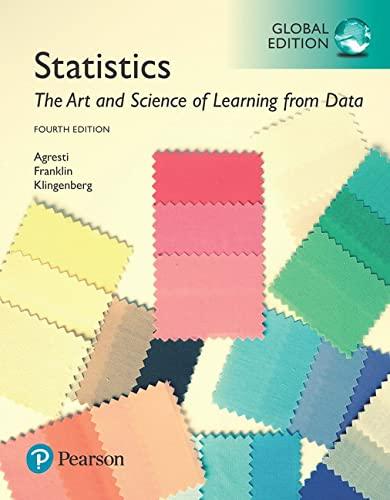Hormone therapy and heart disease Since 1976 the Nurses Health Study has followed more than 100,000 nurses.
Question:
Hormone therapy and heart disease Since 1976 the Nurses’ Health Study has followed more than 100,000 nurses. Every two years, the nurses fill out a questionnaire about their habits and their health. Results from this study indicated that postmenopausal women have a reduced risk of heart disease if they take a hormone replacement drug.
a. Suppose the hormone-replacement drug actually has no effect. Identify a potential lurking variable that could explain the results of the observational study.
(Hint: Suppose that the women who took the drug tended to be more conscientious about their personal health than those who did not take it.)
b. Recently a randomized experiment called the Women’s Health Initiative was conducted by the National Institutes of Health to see whether hormone therapy is truly helpful. The study, planned to last for eight years, was stopped after five years when analyses showed that women who took hormones had 30% more heart attacks. This study suggested that rather than reducing the risk of heart attacks, hormone replacement drugs actually increase the risk.3 How is it that two studies could reach such different conclusions? (For attempts to reconcile the studies, see a story by Gina Kolata in The New York Times, April 21, 2003.)
c. Explain why randomized experiments, when feasible, are preferable to observational studies.
Step by Step Answer:

Statistics The Art And Science Of Learning From Data
ISBN: 9781292164878
4th Global Edition
Authors: Alan Agresti, Christine A. Franklin, Bernhard Klingenberg






